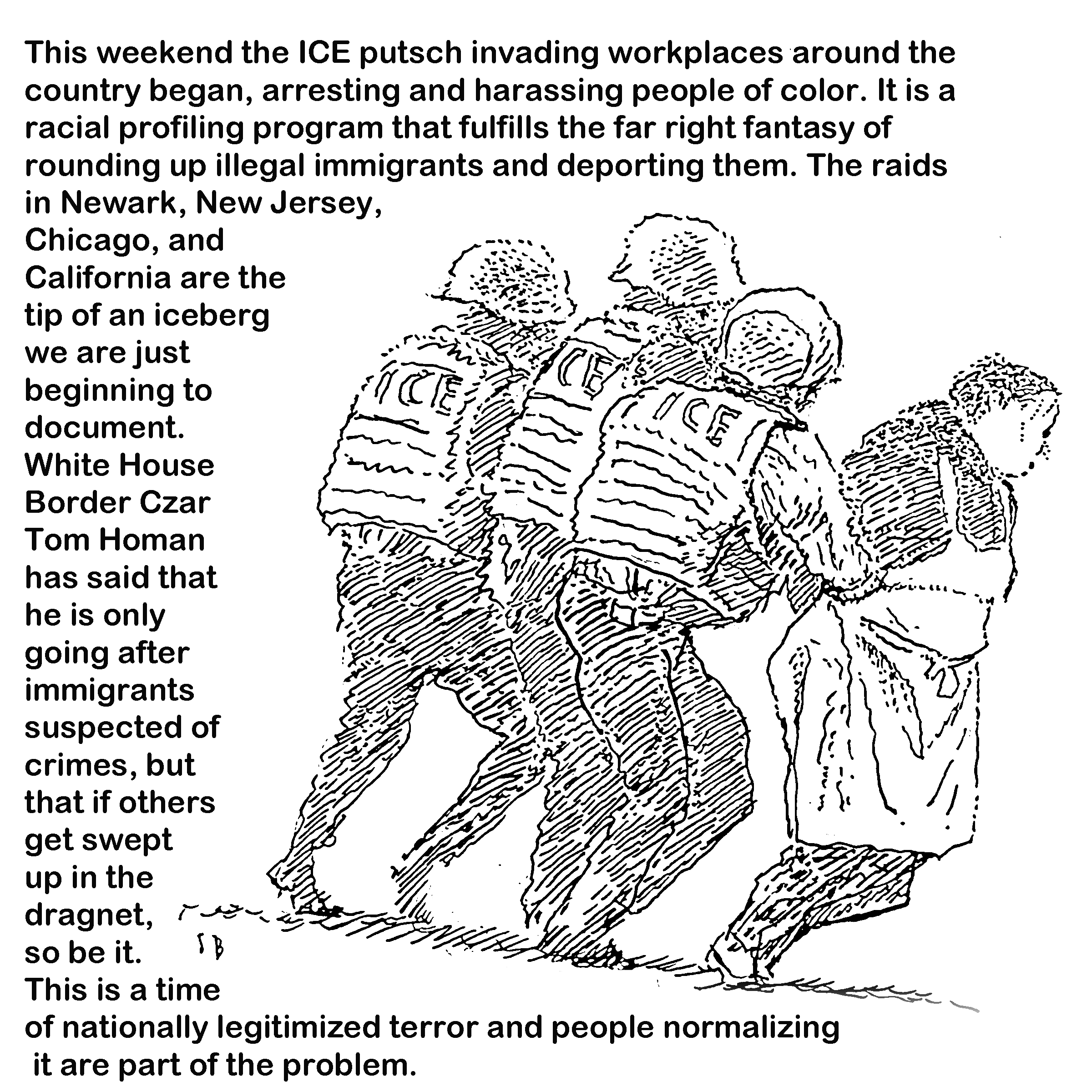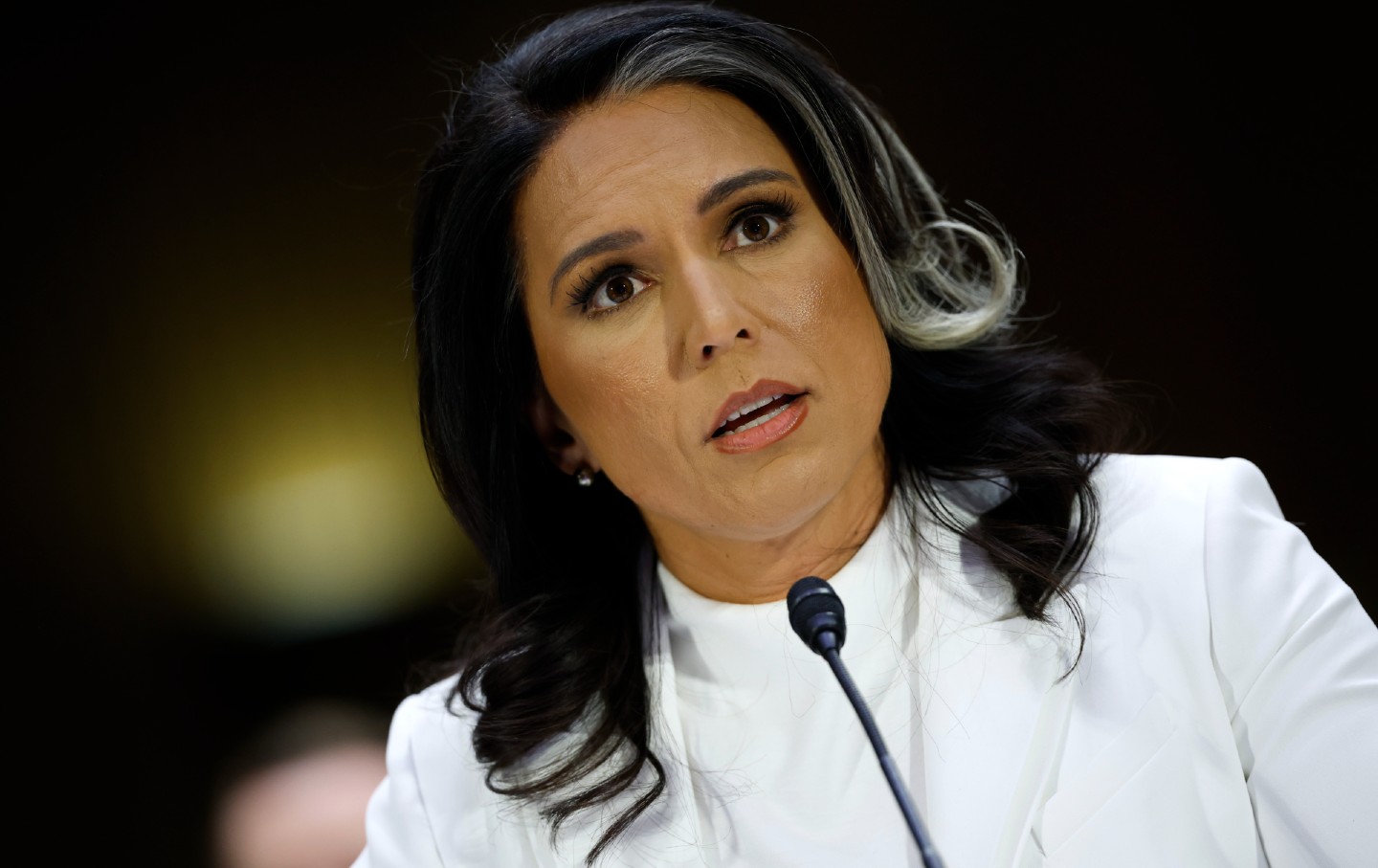Politics
/
January 31, 2025
Yes, pushing back against Donald Trump is essential. But to do that, the Democrats must turn themselves into a fighting force for economic justice.
Candidates for DNC chair meet in Detroit on January 16, 2025.
(Politico / YouTube)
Democrats are reeling from the defeats they suffered in last November’s election. On Saturday, they have their first big chance to determine how to bring themselves back from the political wilderness—by selecting a new slate of leaders for the Democratic National Committee.
The party has credible candidates for the post of DNC chair, and for the various vice chair and executive positions that will be filled by the 448 party insiders, labor leaders, and elected officials who will make the call.
Much of the media has been focused on the contest for chair because of the prospect that the winner could emerge as a leading face of opposition to the dangerous presidency of Donald Trump. That’s especially true, argue activists with groups such as MoveOn and the Progressive Change Campaign Committee, if it is a dynamic figure such as Democratic Party of Wisconsin chair Ben Wikler, one of two front-runners in the race for the top job, the other being Minnesota party chair Ken Martin, a veteran organizer who was mentored by progressive former US senator Paul Wellstone.
Certainly, pushing back against Trump will be a vital task for the new top team. But that’s not enough. Democrats need leaders who will drive a radical transformation of their party’s character and vision. After all, this is a political organization that, despite its considerable resources and hard-working candidates, could not muster enough support in 2024 from its traditional base of working-class voters to defeat Republicans with positions so irrationally plutocratic that they would, just a few years ago, have been on the far fringe of American politics.
The overhaul must be both internal and external.
What’s needed is a Democratic Party where grassroots activists and their allies in labor, environmental, and civil rights organizations sweep the pablum of past messaging aside and replace it with an absolute commitment to economic and social and racial justice that gives frustrated Americans something to vote for.
Current Issue

The next DNC chair must not just be a competent manager, or a mere fund-raising complement to the party’s congressional leadership. They, along with the vice chairs, must lead in a way that ensures Trump and his followers do not dictate the political landscape.
History shows us what is necessary. The party has had transformative chairs in the past: Paul Butler, known for his outspoken speeches against Democratic leaders of Congress and southern segregationists in the 1950s; Ron Brown, who prioritized diversity and voter mobilization in the late 1980s and early 1990s; and Howard Dean, who successfully implemented the 50-state strategy in the 2000s. However, the party now needs a modern-day Fred Harris—a fierce Oklahoma populist who shook up the DNC in the late 1960s and early 1970s.
The party should seek a leader who embodies Harris’s blend of internal and external populism.
Harris, a Senator from Oklahoma who ran for the Democratic presidential nomination in 1976 with the slogan “Tax the Rich!” and a campaign promise of “No More Bullshit!”, passed away last fall at 94. He was remembered as an anti-racist, a fierce advocate for economic justice, and a progressive populist ahead of his time.
During his tenure as DNC chair, Harris aimed to empower grassroots Democrats, but his time was cut short. There is a need now, over 50 years later, to complete the work Harris started for the party’s future.
Harris believed in transforming the Democratic Party into a movement focused on eradicating poverty in America. He envisioned a party that was inclusive, democratic, and committed to economic justice, drawing in people from all backgrounds to participate in the political process.
To achieve his goals, Harris fought for reform within the party, pushing for greater inclusion of women, people of color, and young activists. His efforts laid the groundwork for more democratic processes within the DNC.
The party today faces similar challenges and resistance to change. However, the Democratic Party must evolve to meet the needs of a diverse America and stand as a united front against privilege and inequality.










